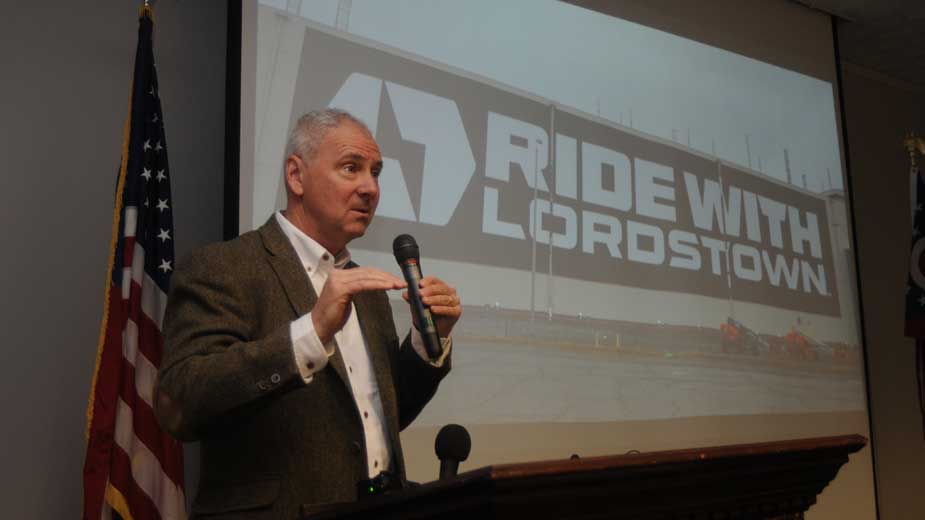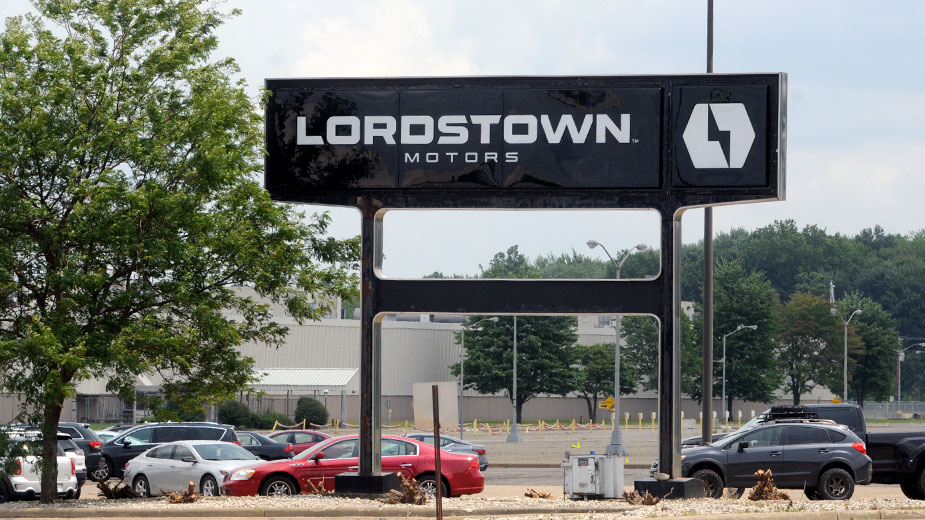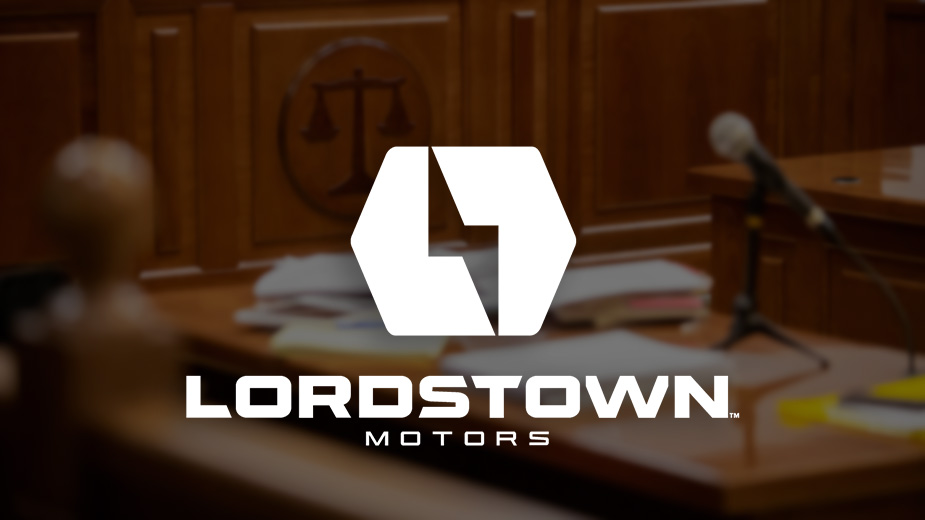Affidavit: Foxconn’s Actions ‘Destroyed’ Lordstown Motors; Foxconn Responds
LORDSTOWN, Ohio – Foxconn’s refusal to fulfill its contractual obligations to Lordstown Motors Corp. “destroyed the company’s business and future,” forcing the electric-vehicle startup into bankruptcy, according to an affidavit filed Tuesday in U.S. Bankruptcy Court for the District of Delaware.
Moreover, a lawsuit simultaneously filed in the court against Foxconn alleges that the company used its promise of a partnership to sabotage Lordstown Motors’ business “in an effort to strip plaintiff’s assets and poach its talent at little cost.”
Adam Kroll, Lordstown Motors’ chief financial officer, declared in court papers supporting the company’s bankruptcy that Foxconn’s failure to complete an investment agreement the parties signed in November caused Lordstown’s customers and vendors to cancel or scale back their business, deepening problems for the automaker.
“As a result of Foxconn’s actions, a number of major customers and vendors terminated or cut back their business dealings with the company, and the company has had to initiate significant cost-cutting actions,” the affidavit said.
These included employee layoffs and the issuance of WARN (Worker Adjustment and Retraining Act) notices “that have further damaged the company’s business relationships, employee morale and relations, as well as the company’s future prospects,” court papers say.
Lordstown Motors filed for protection under Chapter 11 of the U.S. Bankruptcy code early Tuesday morning. The company also filed accompanying litigation against Foxconn, alleging breach of contract, tortious interference with a contract and common law fraud.
“Instead of building a thriving business for the benefit of all Lordstown stakeholders, Foxconn’s fraudulent actions have destroyed the company’s business and future, stripping its ability to continue as a going concern absent a strategic Chapter 11 transaction,” Kroll’s statement said.
Taiwan-based Foxconn, the largest electronics contract manufacturer in the world, said in a statement that in light of the lawsuit, all negotiations are now off the table.
“Regarding LMC’s litigation announcement today and the false comments and malicious attacks made by LMC in its external statements against Foxconn, the company reserves the right to pursue legal actions and also suspends subsequent good faith negotiations,” Foxconn said.
“Foxconn originally hoped to continue discussions and reach a solution that could satisfy all stakeholders, without resorting to baseless legal actions, but so far the two parties have yet to reach a consensus.”
Foxconn purchased Lordstown Motors’ plant in May 2022 for $230 million. The deal also included a contract manufacturing agreement that called for Foxconn to build the Lordstown Endurance, an all-electric pickup. Initially, the parties also signed a joint venture agreement that called for collaboration on future EV products.
The JV was modified in November, and instead called for Foxconn to invest $170 million in equity. That month, Foxconn made its first investment of $52.7 million.
Relations between the two companies reached an impasse in April, when Foxconn informed Lordstown Motors that it was in violation of the investment agreement because of a delisting notice Lordstown received from Nasdaq. As such, Foxconn said it was not obligated to close on a subsequent investment of $47.3 million.
In its statement Tuesday morning, Foxconn said it assumed a “positive attitude in conducting constructive negotiations with Lordstown Motors Corp. and in assisting LMC in finding a solution to its financial difficulties.”
Yet Foxconn claims that Lordstown Motors has failed to live up to its obligations. “During this time, LMC has continuously attempted to mislead the public and has been reluctant to perform the investment agreement between the two parties in accordance with its terms,” the company said.
According to the lawsuit and Kroll’s affidavit, Foxconn repeatedly stalled execution of the joint venture, which initially included the development of a midsize crossover vehicle, the Model C, and the Model E, a large sedan. These products were designed in Thailand by Foxconn’s subsidiary, Foxtron.
Foxconn owned 55% of the JV; Lordstown Motors, 45%.
The complaint alleges that Foxconn never followed through with its JV commitments, including its promise to share data and engineering information of the new products. Foxconn also never approved a budget for the new JV, nor shared bank information with Lordstown Motors, the lawsuit alleges.
Lordstown Motors was subsequently forced to defer “promising discussions” with one of the largest fleet managers in North America, court papers say.
The company then informed Foxconn that it was in breach of the JV, which led to renegotiating the joint venture into a direct investment agreement the parties signed in November, documents say.
That agreement called for Foxconn to purchase $52.3 million in common and preferred stock. Subsequent closings included $47.3 million in common stock by May 8, 2023, and additional closings amounting to $70 million in preferred stock.
The initial stock purchase was executed in November, and Lordstown Motors began pre-development work on the new vehicle programs, the lawsuit said. However, the lawsuit states Foxconn delayed submitting documents to the Committee on Foreign Investment in the United States, shifted on which EV programs to develop, and in the process sabotaged Lordstown’s product development efforts.
Meanwhile, Lordstown Motors’ stock plunged. On March 7, 2023, shares of Lordstown, which trades under the ticker RIDE, fell under $1, where they remained for 30 consecutive business days. On April 19, the company received a delisting notice from Nasdaq, informing the company that it was in violation of its minimum bid of $1 and had 180 days to come into compliance.
Foxconn then notified Lordstown Motors that it intended to terminate the investment agreement and was not bound to close on its second equity purchase by May 8. Lordstown Motors responded that Foxconn could not terminate the agreement because that company did not make “necessary efforts to agree upon the budget milestones to facilitate the subsequent preferred funding,” the complaint states. Lordstown Motors informed Foxconn that if the termination notice were not retracted, it would be forced to publicly disclose Foxconn’s position, documents say.
Foxconn did not immediately respond, the court filing says. On May 1, Lordstown Motors announced the impasse in a regulatory filing.
That filing, the lawsuit says, caused the company’s stock price to plummet further. “Within hours of the filing, several customers, including one of the largest fleet managers in North America, canceled or deferred discussions regarding the purchase of Lordstown vehicles,” court papers say. “Since then, the impact of the Foxconn dispute on the company has been severe.”
Foxconn did retract its termination statement on May 2, acknowledging it had no right to cancel the agreement. Lordstown Motors, in turn, asserted that it was not in breach of the agreement because of the Nasdaq notice and demanded a retraction, and Foxconn has failed to do so, the complaint said.
To remedy this, Lordstown Motors initiated a 1:15 reverse stock split that boosted its shares above the $1 minimum. Nasdaq informed Lordstown Motors on June 7 that the company was now compliant.
The reverse stock split combines 15 shares into a single unit, thereby adjusting the stock value of a single share, but reduces the number of shares.
However, Foxconn informed Lordstown Motors in a letter June 5 that the investment agreement does not allow for an adjustment of the number of shares it is obligated to purchase.
Under Foxconn’s interpretation, the Taiwanese tech giant would have the rights to purchase more than 60% of the company’s stock after adjustments because of the reverse stock split.
Lordstown Motors’ attorneys responded in a letter June 7, suggesting Foxconn was either sabotaging the deal or initiating an attempted takeover of the company, and threatened litigation.
In the end, Lordstown Motors contends that the Foxconn deal from the very beginning was designed to take operation of the plant and acquire its assets, the lawsuit claims.
“These agreements were the instruments by which Foxconn perpetrated its broader scheme to loot plaintiffs of their most valuable assets,” court papers say. “Deprived of necessary funding and cooperation to develop a scalable vehicle platform, plaintiffs ability to continue operations is in jeopardy, and they have suffered, and will continue to suffer, billions of dollars in damages,” the complaint states.
Lordstown Motors requests that the court find in its favor and award it damages in an amount to be determined at trial.
At midday, shares of Lordstown Motors were down nearly 37%, trading at $1.75 per unit.
RELATED COVERAGE:
In Wake of Chapter 11 Filing, Officials Envision Future Beyond Lordstown Motors
Copyright 2024 The Business Journal, Youngstown, Ohio.



